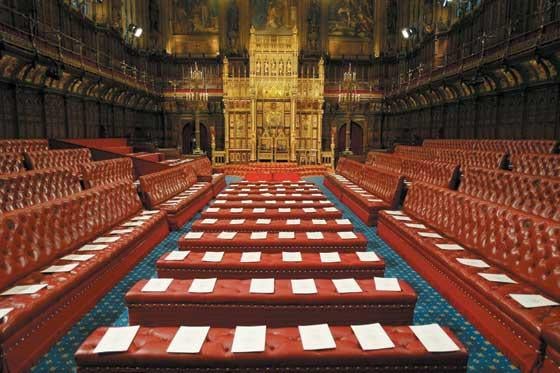
Bringing curbs against the press, which peers have tried to tag on to the Data Protection Bill, would have dire consequences for the Scottish newspaper industry, MPs have been told.
The warning came from Scottish publishers at a Scottish Newspaper Society (SNS) parliamentary reception for MPs last week, the News Media Association, which represents the UK’s national, regional and local press, reported in its weekly bulletin.
Among the speakers at the event was Bill Laidlaw, proprietor of independent publisher DNG Media, who warned of the challenges facing local news media and the dire effects for local journalism if the curbs were brought into force.
Peers inserted clauses into the Data Protection Bill which would mean that any newspaper not signed up to a recognised press regulator would have to pay all the costs of any claim for breaches of data protection legislation, even if they won, and no matter how unmeritorious or hopeless the claim.
The NMA bulletin reported that in a piece about last week’s event for the Behind Local News UK website, SNS director John McLellan said: “Speaking up for small independent publishers, the proprietor of the Dumfries News group, Bill Laidlaw, told of the loss of classified advertising, of public notices and of political advertising which was making the job of covering the Annan community in the pages of the Annandale Observer increasingly difficult to sustain, even without further legislation.
“The conversations in the room were inevitably dominated by the implications of the Data Protection Bill amendments now going through the final Commons stages before enactment in May, which threaten to introduce punitive costs and damages for data protection breaches by news publishers.
“In a Scottish context this flies in the face of a basic principle of Scots Law, which does not permit punitive damages. Data protection is a UK-wide statute and so anything which compromises the independence of the Scottish legal jurisdiction is unlikely to be supported by the SNP.”
Publishers, journalists and campaigning groups have spoken out against proposals for a Leveson Two-style inquiry into data protection issues in the media, and punitive costs sanctions targeting newspaper publishers.
The provisions were removed from the Bill in a narrow vote by the Commons Data Protection Bill Committee last month.
But Labour immediately vowed that it would reintroduce them at a later stage.
It is also likely that a fresh attempt could be made to reinsert them into the Bill in the House of Lords.
Newspaper Conference chairman Patrick Daly told the Commons Data Protection Bill committee in his submission that conducting a Leveson Two-style inquiry into data protection issues in the media would be “to look for cobwebs while Rome burns in front of our eyes”.
Law firm Foot Anstey, which represents a large number of regional and local newspapers, said the Section 40-style provisions would be “contrary to the public interest” and would “likely be extremely damaging both to the UK news industry, and to the ability of our fellow citizens to access national and local news and information”.
Anti-corruption non-governmental organisation Global Witness said: “The threat of costs consequences, even in a legal case where the publisher is successful, would have a highly undesirable impact on non-profit and civil society organisations that adhere to extremely high standards in their investigations into corruption and inequality, but do not have the resources to risk the uncertain prospect of litigation.”
Index on Censorship, English PEN, and Reporters Without Borders have also warned that the proposals would have a chilling effect on freedom of expression and investigative journalism, with news organisations shying away from public interest stories because of the threat of crippling costs.
Email pged@pressgazette.co.uk to point out mistakes, provide story tips or send in a letter for publication on our "Letters Page" blog
